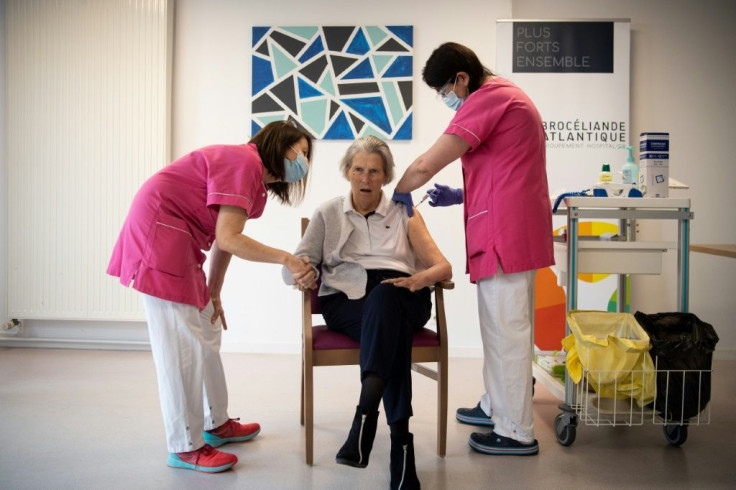Drinking Alcohol After Getting Coronavirus Vaccine Could Make It Ineffective, Russian Scientist Says
KEY POINTS
- Health experts warn that alcohol should be avoided before and after getting vaccinated as it suppresses the immune system
- An expert in the U.K. recommends abstaining from drinking a day before and after receiving the COVID-19 vaccine
- However, one Russian scientist said alcohol should be avoided for three days after each injection
Those who receive the COVID-19 vaccine may have to steer clear of alcohol for a certain amount of time as it affects people's immune responses to the COVID-19 vaccine, according to health experts.
Experts' guidance on alcohol consumption before and after a COVID-19 vaccine shot varies. Russian health official Anna Popova said in December that people should not drink alcohol at least two weeks before getting the first of two injections of the country's Sputnik V vaccine, Reuters reported. She also advised staying away from alcohol for a further 42 days.
Alexander Gintsburg, head of the Gamaleya National Center of Epidemiology and Microbiology in Moscow, which developed the Sputnik V vaccine, also recommended abstaining from alcohol, though not as long as Popova's proposed two months.
“We strongly recommend refraining from alcohol for three days after each injection,” Gintsburg told New Scientist last month, adding, “This is quite obvious.”
He warned that alcohol consumption after an injection can "significantly blunt the immune response and potentially render the vaccine ineffective." The scientist added that this applies to all vaccines, not just those for COVID-19.
"Of course, we are not talking about a complete ban on alcohol during vaccination. This is just a reasonable limitation of consumption until the body has formed its own immune response to coronavirus infection," he said. "It is important to understand that excessive alcohol consumption can significantly reduce immunity and therefore reduce the effectiveness of vaccination or even make it meaningless. Moreover, this is true not only for Sputnik V, but also for any other vaccine."
Experts in the U.K. had a milder recommendation. Sheena Cruickshank, a professor at the University of Manchester, told Metro U.K. drinking should be avoided only the day before and after getting vaccinated to "have your immune system working tip-top."
"There's no evidence that, if you have one beer or a glass of wine a couple of days after you get your vaccine, that's going to interfere with your immune response or protection following the vaccine," William Moss, executive director of the International Vaccine Access Center at Johns Hopkins University, told Insider.
"When that point is stated in such an extreme way, I think it's actually damaging to public health," he added.
It should be noted, however, that there is a significant difference between one glass of wine and a whole bottle. Experts found that heavy drinkers are at higher risk for a multitude of health problems, including a weakened immune system, according to Mayo Clinic. That is why doctors advise moderating alcohol consumption, regardless if one is about to get a vaccine or not.
The effectiveness of a vaccine depends on a person's immune system learning to recognize and combat pathogens, either viruses or bacteria. Thus, it is crucial that it remains strong when getting a vaccine, such as the COVID-19 vaccine.

© Copyright IBTimes 2025. All rights reserved.





















